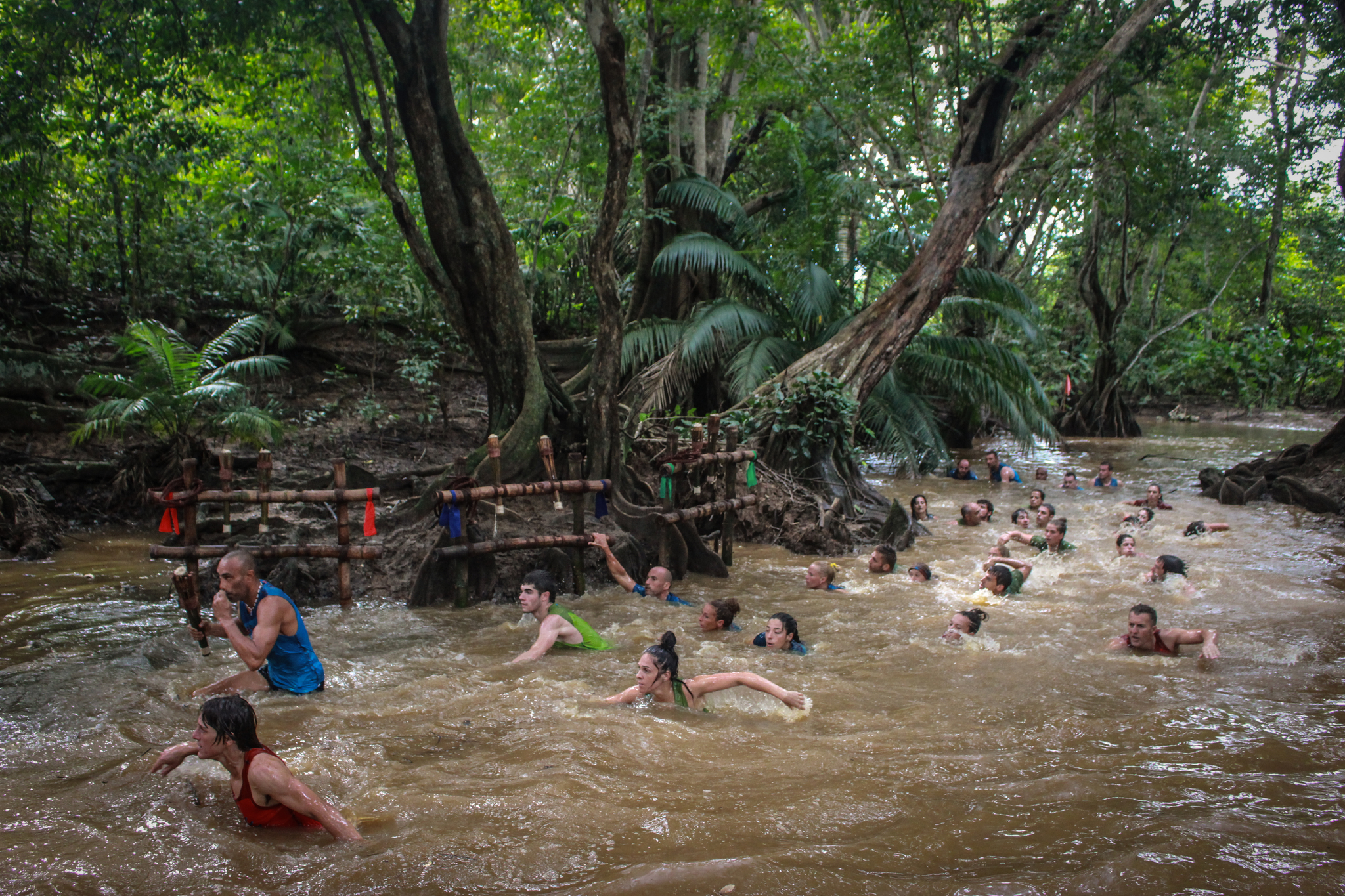Let us propose a hypothesis: to what extent are you willing to take your body before a television camera?
Would it skin an animal with its mouth?
Would a week go by in the rain day and night without shelter?
Would it expose itself to the danger of a hurricane?
And if all this were real, ultimately, would life be at stake?
Because that is what the contestants of
El Conquistador del Caribe do
every week for more than 145,000 viewers on Basque public television.
Nobody escapes the dynamics of the format: it is
Survivors
, but surviving in the extreme. "If someone aims to climb 8,000, to dive with sharks or to sail around the world, they are aware that it will not be a bed of roses, the adventure cannot be lived from home", points out
Patxi Alonso
, producer
El Conquis
executive
, which in its 17th season continues to improve its audience data. According to statistics cited by the producer Hostoil (The Mediapro Studio), this season, broadcast every Monday, marks
an average share of 25.3% of
share
and the last program reached a record 29.3% in EITB 2.
Regardless of the data,
El Conquis
has become a social phenomenon in the Basque Country and on social networks
. "I saw him every Monday from the age of four with my family, I was waiting until I was 18 to be able to introduce myself, but they didn't catch me."
Iker Babio
had to wait four years, until he was 22, to travel to the Pearl Archipelago, participate and win the "
most extreme
reality show
in the world" in its 2019 edition.
This is how a program is presented that from Basque television has
Argentine, Venezuelan or Colombian citizens
glued to
streaming
, according to its executive producer. "The
Conquis
phenomenon
has spread throughout the world, but we are
looking for local clues that make the Basque Country much more than a television program
." And they have succeeded because they have already become a family classic on Monday night in homes in the Basque Country for 17 years.
And not only there, the success extends to other parts of Spain with contestants venturing to expose themselves to the dangers of
El Conquis
. This is the case of Luna Couto, who in 2019 decided to live the adventure. “I didn't know the format until a friend showed it to me and it's as crazy from the inside as it looks from the outside.
You live in very extreme situations, both physically and psychologically you go to the limit
”, says this personal trainer from Madrid who from one day to the next found herself on an island of Panama surrounded by Basques trying to survive.
«There are more and more candidates, young people who join, veterans who dare to live an adventure that takes them out of the monotony. Despite its extreme harshness, it is an open experience, ”says its executive producer. But where is the harshness that is so much talked about?
In sleeping out in the open in the rain for days without eating food, in continuous survival tests or in enduring infected wounds
for days in those conditions. "It's what a
Survivor
would be
, but really, with suffering," they say from the producer.
"This is not an
iron man
, here the head and the ability to adapt to the environment, count as much as the physical", explains Patxi Alonso. A theory shared by the participants, who place the psychological as the key to success. «It seems that the hardest thing is hunger, but in the end your stomach closes up and with half a can of tuna or without eating you can hold out even if you are lazy in the tests and get dizzy.
The worst thing is the time without doing anything, the psychology of going to the camp and being 24 hours wet and full of injuries
thinking what you do there without seeing your family ", details Iker Babio, industrial firefighter by profession.
«Rain is the worst thing, that it rains here is not a big deal but when you sleep under palm leaves it is hell.
At night it does not let you sleep at all, you are soaked and the body becomes alert.
On TV you don't realize how exasperating it is ».
Luna Couta knows this well that during her time through the program she faced the tail of a hurricane in Panama.
A situation that caused criticism to intensify against the program for endangering the lives of the contestants.
And they are not the only ones: the
slaughter of animals has turned several animalist associations against the
Conquis
at a time when society has become more sensitive.
“We are here to listen, analyze and improve.
There is more and more awareness on the part of the production ”.
But the tests have not decreased in intensity since their inception back in 2005 in Patagonia until now in the Dominican Republic.
"In this welfare society we need emotions, even if they are imported through television because marking differences in hardness is something that, paradoxically, those who seek to live a unique and unrepeatable adventure, the great experience of their lives, end up thanking them", concludes Alonso .
If that's what you want, you know where to find it, now get ready to roll through the mud, face fire or skin animals because that's
El Conquis
.
According to the criteria of The Trust Project
Know more
See links of interest
Home THE WORLD TODAY
Work calendar
UCAM Murcia - Casademont Zaragoza
Arsenal - Brighton and Hove Albion
Aston Villa - Chelsea
Fulham - Newcastle United
Leeds United - West Bromwich Albion

